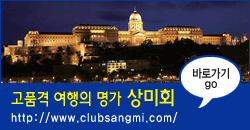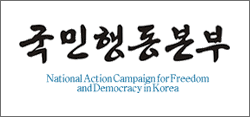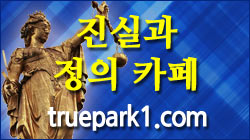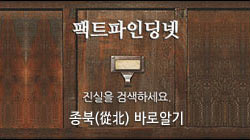by Kim Pyung-woo (Attorney and former head of the Korea Bar Association)
Following a month of candle-light protests by demonstrators demanding the president’s resignation, the National Assembly finally caved in to public pressure and voted on Dec. 9 to impeach Park, resulting in the suspension of her powers. The Korean news media lauded the decision as a “victory for democracy” and an “honorable revolution of the people.” The Korea Bar Association and other civic groups rushed to release statements the following morning welcoming and supporting the impeachment vote. Protesters took to the streets to toast the impeachment vote and shout in joy. But not a single foreign news media outlet described the impeachment vote as a people’s revolution. Rather, tens of thousands of Park’s supporters took to the streets the following day waving the Korean flag and denouncing the impeachment vote. Korean news media largely ignored those protests as if those Koreans who showed their support for the president by shedding tears and waving the flag are unworthy of attention.
I disagree with the news media and Korean Bar Association which view the latest events as a revolution. In my view, the latest incident is not a revolution, but a form of political maneuvering aimed at grabbing power by driving out a lame duck president in the final year of her single-term presidency. Impeachment is the culmination of a pseudo-revolution that has transpired over the past month. Let me explain why I feel this way.
First, the target of a people’s revolution or democratic uprising must be an anti-democratic regime that stands against the will of the public. The cause is the anti-democratic dictatorship and the response is a civilian and democratic government seeking to topple the autocratic regime. But the Park administration is not anti-democratic or anti-government. Park was elected president on Dec. 19, 2012 by garnering the support of 51.6 percent of registered voters in a fair and transparent election. She took the oath of office in February of 2013 with the Korean public bearing witness. Her leadership is legitimate according to our nation’s Constitution. Any act that aims to topple such a legitimate and democratically-elected government (regardless of intent) is an illegal attempt at grabbing power, no matter how many people support it for the time being and it is not a glorious revolution of the people.
Second, a revolution involves the process of rebuilding a nation by adopting an entirely different political and economic system compared to the past. The French Revolution, Russian Revolution, Warsaw Uprising, Cuban Revolution and the April 19 Pro-Democracy Revolution of Korea are remembered and revered as honorable revolutions, since they all led to the establishment of democratic governments, although the accompanied some violations of the law as well as bloodshed. But what exactly do the forces seeking to topple the Park Geun-hye administration seek to establish? Do they aim to establish a new political and economic system that is more democratic than the Constitution of 1987? No. I have yet to hear a single journalist, opposition lawmaker or protester mention a new political or democratic system. Even if they did have something in mind, it was probably limited to a left-wing slogan at best and nothing more. The simple mentality at work is to oust the president as quickly as possible, because the public has grown tired of her, and hold a fresh round of presidential elections earlier than scheduled. It would be more convincing to propose holding early elections due to an expected natural disaster in December. Demanding early elections simply because the public has grown tired of Park is like a spoiled child’s grumbling.
Third, a revolution refers to a phenomenon where an oppressed people suddenly rise up against a long-reigning and oppressive regime and swiftly topple an authoritative dictator. Fulgencio Batista of Cuba, Ferdinand Marcos of the Philippines and Muammar Gaddafi of Libya, who ruled for decades with an iron fist, are prime examples of dictators who were toppled by a people’s revolution. But Park is a democratically-elected president whose constitutionally-guaranteed, five-year, single term presidency is scheduled to end in a year. Bringing down a president whose tenure is scheduled to end soon cannot be called a revolution. A revolution may sound glorified, but is actually a violation of laws that entail early campaigning by presidential hopefuls.
Fourth, a revolution is a moving drama characterized by a reversal of fortune in which the people of a country put their lives at risk to overthrow a seemingly impregnable and despotic leader. That is why revolutions trigger strong emotions within us. But the series of events we have witnessed in Korea so far constitute merely a political maneuver to betray and oust the president through a scheme hatched by the omnipotent news media, prosecutors, opposition lawmakers who account for a majority of seats in the National Assembly, scores of protesters and high-ranking officials who have endured both good and bad times with Park over the past decade. It is inherently different than a traditional revolution. We are not witnessing a reversal of fortune, in which the oppressed people overthrow a despotic ruler, but rather the opposite, in which the powerful majority join forces to ostracize a lonely individual. We are witnessing an unethical and ugly power struggle.
Fifth, a people’s revolution is a tough battle against a corrupt and absolute dictator. This process entails a lot of bloodshed among protesters as seen during the Russian Revolution and April 19th Revolution in Korea with many innocent people being jailed. Revolutions are revered since they entail such valuable sacrifices. But the citizens who participated in the latest events in Korea did not sacrifice anything. Not a drop of blood was shed and not a single person was hurt. The only people who were hurt were the president, who was unfairly condemned, her aides, government workers and heads of major business conglomerates, who were subjected to utter humiliation in front of a National Assembly hearing into the Choi Soon-sil scandal.
In conclusion, citizens who participated in the candle-light protests did not make any sacrifices. Rather, they gathered on pre-scheduled dates at reserved locations and were backed by a highly-supportive news media and received various amenities, including candles, food and transportation funded by mysterious donors. Seoul city officials who authorized the candle-light protests ensured that demonstrators would not experienced any inconveniences by prohibiting other groups from holding rallies downtown. Opposition lawmakers showed up at the protests to exchange handshakes with the demonstrators and take selfies. They were not hindered by police, but were fully supported by them. Citizens lit candles supplied by protest organizers and clapped and sang as if they were attending a popular festival. Some protesters apparently received money for taking part in the demonstrations. This cannot be called a revolution. It is a pseudo revolution involving part-time demonstrators.
There is one thing the citizens of Korea should refer to as a revolution. That would be the uprising by the 20 million people of North Korea, who have suffered under the most oppressive conditions in the world for the past 70 years, unable to speak their minds as they hunkered under starving conditions. The day the tyrannical and hereditary rule of the Kim dynasty comes to an end in North Korea will be the day the Korean peninsula gets to experience a genuine revolution. We will be able to congratulate the heroic and courageous North Korean people for achieving an authentic revolution. Until that day, let us be careful about using the venerable term called “revolution.” I am afraid that the events being witnessed in our country right now may tarnish the true meaning of revolution.
Dec. 12, 2016
‘혁명’이 아니라 ‘혁명놀이’다!
이번 사태는 시민혁명이 아니라 레임덕의 단임제 대통령을 몰아내고 早期(조기)선거를 치르려는 일종의 정치공작이다. 탄핵은 지난 한 달 간 즐겼던 ‘혁명놀이’의 쫑파티라고 볼 수 있다.
대통령 下野(하야)를 요구하는 한 달여 간 촛불시위 끝에, 이 시위에 밀려 국회는 12월9일 朴 대통령을 탄핵소추하여 직무를 정지시켰다.
한국 언론은 이를 ‘민주주의의 승리’, ‘시민혁명’, ‘명예혁명’이라고 보도했다. 변호사단체를 비롯한 이 나라의 시민단체들은 기다렸다는 듯 그 다음날 아침 언론에 이를 환영·지지, 동참하는 성명서를 냈다. 시위 참가자들은 광장에 몰려 나와 축배를 들고 감격의 환호성을 울렸다.
그러나 어느 외국도 한국에서 ‘시민혁명’이 일어났다고 보도한 언론은 없다. 오히려 바로 그 다음날, 수만 명의 시민들이 서울 광화문 광장에 나와 태극기를 흔들고, 애국가를 부르며 탄핵소추 가결을 규탄했다. 우리 언론은 이를 무시하고 거의 보도하지 않았다. 마치 광장에 나와 태극기를 흔들고 애국가를 부르며 눈물을 흘리는 수만 명의 시민들은 한국 언론이 취재하고 보도할 가치가 없는 二等(이등), 敵性(적성)의 국민인 것처럼.
나는 이번 사태를 혁명으로 규정하는 언론과 변호사단체의 성명에 찬동하지 않는다. 내가 보기에 이번 사태는 시민혁명이 아니라 레임덕의 단임제 대통령을 몰아내고 早期(조기)선거를 치르려는 일종의 정치공작이다. 탄핵은 지난 한 달 간 즐겼던 ‘혁명놀이’의 '쫑파티'라고 볼 수 있다. 내가 왜 혁명이라 하지 않고 ‘혁명놀이’라고 부르는지 그 이유를 설명하겠다.
첫째, 우선 시민혁명, 민주혁명이라고 하려면 먼저 혁명에 의해 무너뜨리는 대상이 反시민, 反민주 정부여야 한다. 反민주, 反시민정부가 ‘테제’이고 이를 넘어뜨리고 세우려는 시민정부, 민주정부가 ‘안티테제’이다. 박근혜 정부는 反시민이나 反민주정부가 아니다. 박근혜 대통령은 2012년 12월19일 유권자가 참여한 비밀·보통·평등·직접 선거에서 51.6%의 지지를 받아 당선되었다. 2013년 2월 국민과 헌법 앞에 선서하고 탄생한 민주·시민정부이다. 朴 대통령은 이 나라의 全국민이 1948년 建國 이래 처음으로 정치적 계파를 떠나 제정한 1987년 헌법에 따라 선출한 정통정부이기도 하다. 이런 완벽한 민주·정통정부를 무너뜨리는 건 (명분이 무엇이건 간에) 아무리 많은 국민들이 일시적으로 찬성한다 하더라도 불법적인 정권찬탈[政變(정변)]이지 혁명, 그렇다고 명예로운 시민혁명은 더더욱 아니다.
둘째, 혁명은 혁명 이전과 전혀 다른 새로운 정치·경제체제를 만드는 국가재건 사업이다. 프랑스 혁명, 러시아 혁명, 폴란드 민주혁명, 쿠바 공산혁명, 4·19 혁명 등은 비록 그 과정에서 일부 불법과 流血(유혈)이 있었지만 결과적으로 민주정부 수립이라는 커다란 共同善(공동선)을 이룩하였기 때문에 혁명이란 이름으로 昇華(승화)시켜 기린다. 박근혜 대통령을 직무정지, 더 나아가 퇴진시키고 그 자리에 다른 사람을 세우겠다는 건 무엇인가? 1987년 헌법보다 더 민주적인 새로운 정치체제, 경제체제인가? 아니다. 나는 이번 정치파동을 일으킨 언론, 정치인, 시위대가 무슨 새로운 정치체제나 경제체제를 외치는 것을 들어보지 못했다. 있다고 해도 좌경적인 구호였을 뿐이다. 그 외엔 아무 것도 없었다.
그냥 박근혜가 보기 싫으니까 임기까지 기다릴 것 없이 빨리 갈아치우고 선거를 당겨서 빨리 치르자는 거다. 早期(조기)선거 하자는 이야기다. 12월에 천재지변이 나거나 전쟁이 일어날 우려가 있으니 조기선거를 하자면 그래도 이해가 간다. 그러나 대통령이 너무 보기 싫으니까 조기선거를 하자는 건 어린애들 투정에 불과하다.
셋째, 혁명은 장기간의 독재·권위정부에 억눌려 소극적인 저항을 계속해오던 시민들이 어떤 계기에 갑자기 폭발적으로 일어나 장기간의 독재, 권위정부를 순식간에 넘어뜨리는 현상을 일컫는다. 수십 년, 수백 년 계속될 것 같던 쿠바의 바티스타, 필리핀의 마르코스, 리비아의 카다피 등 장기 집권자들이 모두 폭발적으로 일어난 시민혁명에 의해 무너졌다.
그러나 박근혜 대통령은 5년 임기의 단임제 헌법 下에 선출된 대통령으로 1년 뒤에 물러나는 게 예정된 임기 말의 레임덕 대통령이다. 헌법에 따라 어차피 얼마 뒤면 물러날 대통령을 상대로 하여 벌이는 조기퇴진 운동은 혁명이 아니다. 혁명이란 거창한 명분을 내걸고, 실제는 法으로 금지된 사전선거운동을 하는 違法(위법)행위이다.
넷째, 혁명은 난공불락, 무소불위의 절대권력을 행사하는 권력을 상대로 힘 없는 시민들이 목숨을 던질 비장한 각오로 일어나 절대권력을 쓸어버리는 逆轉(역전)의 드라마다. 그렇기 때문에 사람들을 흥분시킨다. 이번 파동은 무소불위의 권력을 행사하는 이 나라의 언론과 검찰, 국회 과반수를 차지한 야당, 수만 명의 시위대, 지난 10여 년간 朴 대통령과 동고동락한 인사들이 대통령을 하루 아침에 배신한 뒤 벌이는 조기퇴진 운동에 불과하다. 통상적인 혁명과는 그 양상이 다르다.
지난 4월 총선에서 과반수를 차지하여 실질적으로 가장 큰 권력을 거머쥔 거대 야당, 이에 밀착한 언론, 검찰이 대통령을 공격하는 입장이고 1년 뒤면 물러나는 대통령 등은 守勢에 몰려 있다. 弱者가 强者를 넘어뜨리는 ‘역전의 드라마’가 아니라 반대로 다수의 강자들이 연합하여 외톨이 한 사람을 왕따시키는 부도덕하고 추악한 권력 투쟁이다.
다섯째, 시민혁명은 부패한 長期(장기) 절대 권력자를 상대로 싸우는 힘든 투쟁이다. 투쟁에 나서는 많은 선량한 시민들은 러시아 혁명이나 4·19 혁명 때처럼 많은 피를 흘리고, 감옥에 투옥되는 등 엄청난 희생을 치르는 게 일반적이다. 이런 고귀한 희생 위에 세워진 것이므로 혁명은 존경받고 기념된다. 이번 사태는 시위에 참여한 시민들이 어떠한 희생도 발생하지 않았다. 피 한 방울, 몸 하나 다친 게 없고 돈 한 푼 희생한 게 없다. 이번 사태에서 희생을 치른 피해자는 언론으로부터 무자비하게 일방적으로 매도당한 대통령과 청와대의 비서관들, 최순실 사건의 증인으로 국회에 끌려가 온갖 수모를 겪은 재벌총수들과 일부 공직자들이다.
정리해보자. 시위에 참여한 시민들은 희생은커녕 언론이 미리 안내해주는 日字(일자), 장소에서 호의적인 보도를 받으며 정체불명의 후원자로부터 양초와, 도시락, 교통편 등을 제공받았다. 서울시청은 집회허가를 미리 내 다른 집회는 못하도록 집회독점 혜택을 주었다.
국회를 장악한 거대 야당은 시위대들과 악수를 교환하고, 만면에 웃음을 띠며 함께 인증샷을 찍었다. 이들은 공권력의 억압이나 방해는커녕 마치 관제 데모꾼처럼 공권력의 전폭적인 지원을 받았다. 시민들은 주최 측이 제공해 주는 촛불을 들고 나와 박수치고 노래하며 마치 축제에 참석한 사람들처럼 즐길 수 있었던 것이다. 일부 시위 참여자들은 시위에 참여한 代價(대가)로 일당까지 받았다고 한다. 이런 게 어떻게 혁명이란 말인가! 누가 보아도 이것은 ‘혁명놀이’, ‘데모놀이’ 아니면 ‘알바혁명’이라 불러야 마땅하다.
우리나라 국민이 꼭 혁명이라고 불러야 할 것이 하나 있다. 지난 70여 년간 세계 최악의 인권탄압, 暴政(폭정) 하에서 선거와 집회는 물론 말 한 마디 제대로 못하고 굶주림에 떠는 2000만 북한 동포들이 어느 날 三代(삼대)에 걸친 김정은 專制(전제)왕조를 무너뜨리는 날이 오면 그것은 혁명이다. 우리는 물론 全세계인이 기꺼이 위대한 시민, 민주혁명이라고 부르며 북한 동포의 용기와 승리를 축하해 줄 것이다. 그날까지 우리는 혁명이라는 숭고하고 멋진 이름을 아껴두자. 早期선거를 노린 ‘혁명놀이’까지 혁명이라고 부르면 혁명이라는 그 숭고하고 멋진 이름이 더렵혀질까 두렵다.
2016. 12. 12. 金平祐(김평우)
(한국·미국 변호사, 第45代 대한변호사협회 회장, 2012년부터 UCLA 비지팅 스칼라)












 Kim Pyung-woo
Kim Pyung-woo








 트위터
트위터 페이스북
페이스북 네이버
네이버




























